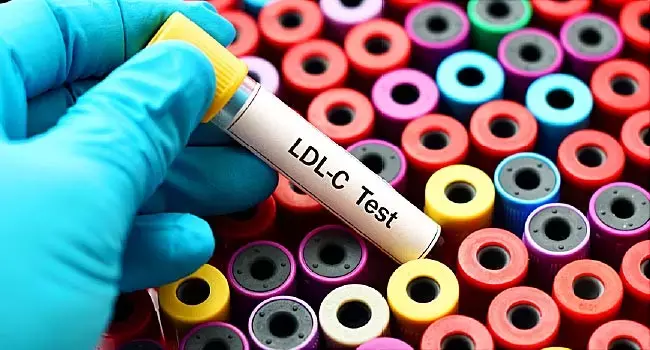- Home
- Medical news & Guidelines
- Anesthesiology
- Cardiology and CTVS
- Critical Care
- Dentistry
- Dermatology
- Diabetes and Endocrinology
- ENT
- Gastroenterology
- Medicine
- Nephrology
- Neurology
- Obstretics-Gynaecology
- Oncology
- Ophthalmology
- Orthopaedics
- Pediatrics-Neonatology
- Psychiatry
- Pulmonology
- Radiology
- Surgery
- Urology
- Laboratory Medicine
- Diet
- Nursing
- Paramedical
- Physiotherapy
- Health news
- Fact Check
- Bone Health Fact Check
- Brain Health Fact Check
- Cancer Related Fact Check
- Child Care Fact Check
- Dental and oral health fact check
- Diabetes and metabolic health fact check
- Diet and Nutrition Fact Check
- Eye and ENT Care Fact Check
- Fitness fact check
- Gut health fact check
- Heart health fact check
- Kidney health fact check
- Medical education fact check
- Men's health fact check
- Respiratory fact check
- Skin and hair care fact check
- Vaccine and Immunization fact check
- Women's health fact check
- AYUSH
- State News
- Andaman and Nicobar Islands
- Andhra Pradesh
- Arunachal Pradesh
- Assam
- Bihar
- Chandigarh
- Chattisgarh
- Dadra and Nagar Haveli
- Daman and Diu
- Delhi
- Goa
- Gujarat
- Haryana
- Himachal Pradesh
- Jammu & Kashmir
- Jharkhand
- Karnataka
- Kerala
- Ladakh
- Lakshadweep
- Madhya Pradesh
- Maharashtra
- Manipur
- Meghalaya
- Mizoram
- Nagaland
- Odisha
- Puducherry
- Punjab
- Rajasthan
- Sikkim
- Tamil Nadu
- Telangana
- Tripura
- Uttar Pradesh
- Uttrakhand
- West Bengal
- Medical Education
- Industry
Adding lipid-lowering therapies to statin therapy help to achieve low-LDL cholesterol goals

USA: When combined with maximally tolerated statins to reduce LDL-C, non-high-density lipoprotein cholesterol, and apolipoprotein B levels and make it easier to reach guideline-recommended risk-stratified lipoprotein levels, evolocumab (140 mg Q2W/420 mg once a month) and alirocumab (150 mg Q2W) consistently proved to be the most effective non-statin regimens, states a study published in the Journal of the American Heart Association.
For those with an elevated risk of cardiovascular disease, lowering LDL cholesterol levels reduces major cardiovascular events. To lower LDL-C in accordance with current recommendations, however, reasonable doses of statin medication are frequently insufficient. Nonstatin lipid-lowering therapy may be added to the treatment in these circumstances.
The researchers aimed to provide a thorough evaluation of the relative effectiveness of nonstatin medications in lowering LDL-C in this study.
In randomized controlled trials of lipid-lowering non-statin therapy added to maximally tolerated statins, including patients who were statin intolerant, a systematic literature review and network meta-analysis were carried out. The primary objective was to assess how well nonstatin lipid-lowering therapy reduced LDL levels at week 12 in terms of relative effectiveness. The following were secondary goals: lowering LDL levels by week 24, observing changes in non-high-density lipoprotein cholesterol and apolipoprotein B by week 12 and evaluating changes in all of the above by week 24. In the main network meta-analysis, there were 48 randomized controlled trials.
Conclusive points of the study:
- Regardless of prior medication, all nonstatin medicines significantly decreased LDL-C from baseline compared to placebo.
- The most effective regimens at week 12 included evolocumab (140 mg Q2W/420 mg once a month) and alirocumab (150 mg Q2W), which were followed by alirocumab (75 mg Q2W), alirocumab (300 mg once a month), inclisiran, a fixed-dose combination of bempedoic acid and ezetimibe, and ezetimibe and bempedoic acid used as monotherapies.
- At week 24 and week 12 for various lipid endpoints, the primary endpoint results were largely reliable.
The authors concluded that, when compared to placebo, all nonstatin medications dramatically lowered LDL cholesterol levels.
"Evolocumab, 140 mg Q2W/420 mg QM, and alirocumab, 150 mg Q2W, however—mAb PCSK9 inhibitors also reported to significantly lower major adverse cardiovascular events in patients with atherosclerotic cardiovascular disease and acute coronary syndrome—were consistently the most effective nonstatin agents/regimens, potentially enabling more patients to reach an LDL-C in compliance with the current recommendations," they added.
REFERENCE
Toth PP, Bray S, Villa G, Palagashvili T, Sattar N, Stroes ESG, Worth GM. Network Meta-Analysis of Randomized Trials Evaluating the Comparative Efficacy of Lipid-Lowering Therapies Added to Maximally Tolerated Statins for the Reduction of Low-Density Lipoprotein Cholesterol. J Am Heart Assoc. 2022 Sep 8:e025551. doi: 10.1161/JAHA.122.025551. Epub ahead of print. PMID: 36073669.
Dr Kamal Kant Kohli-MBBS, DTCD- a chest specialist with more than 30 years of practice and a flair for writing clinical articles, Dr Kamal Kant Kohli joined Medical Dialogues as a Chief Editor of Medical News. Besides writing articles, as an editor, he proofreads and verifies all the medical content published on Medical Dialogues including those coming from journals, studies,medical conferences,guidelines etc. Email: drkohli@medicaldialogues.in. Contact no. 011-43720751


